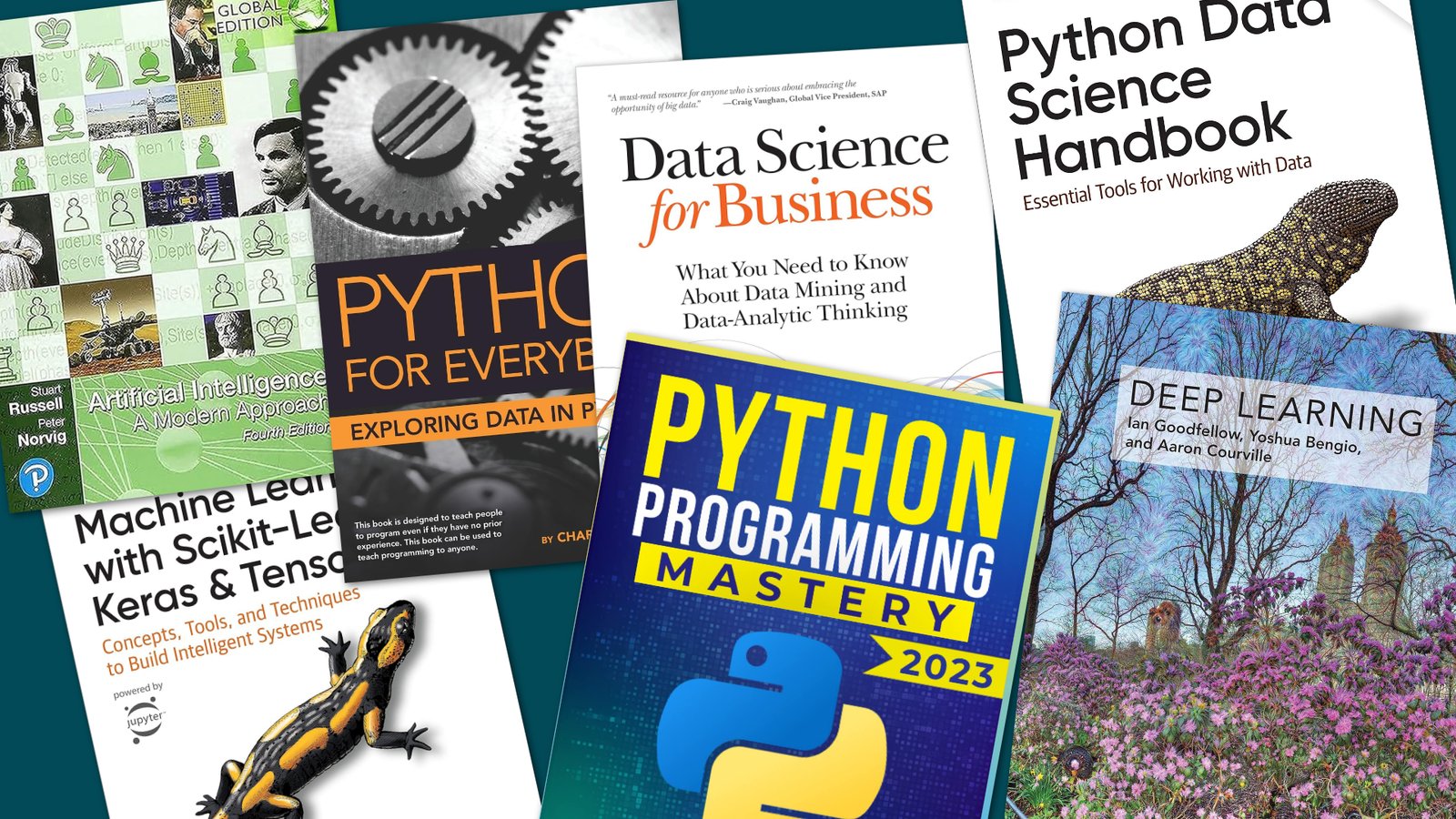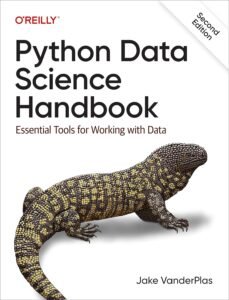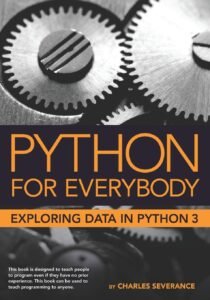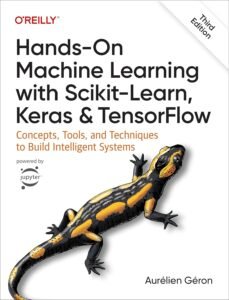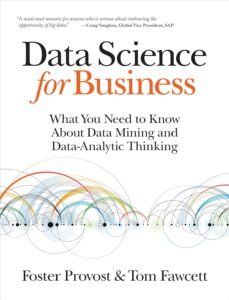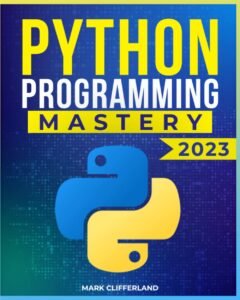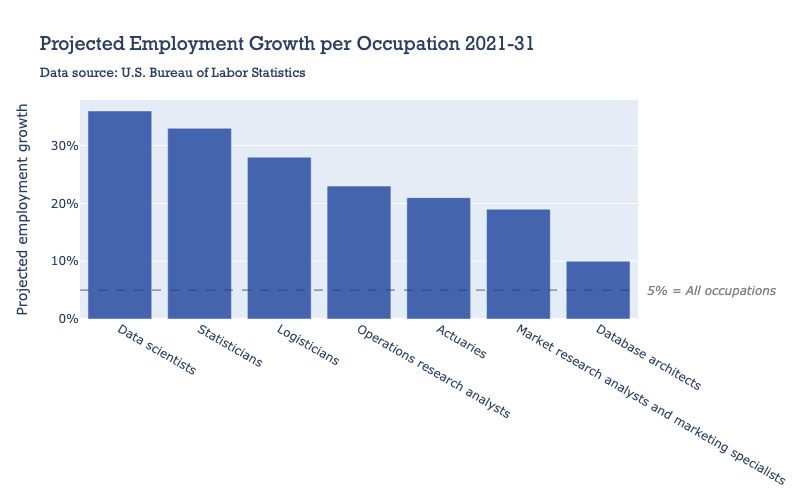Busy Reader’s Summary
- Current Market: Stable but competitive.
- Key Skills: Python, SQL, data management.
- Rising Roles: AI Engineers.
- Opportunities: Freelancing, low-code tools.
Introduction
If you’ve been following the tech world lately, you might have noticed a whirlwind of changes, especially in data jobs. With AI revolutionizing industries and economic shifts impacting hiring trends, the landscape for data professionals is evolving quickly. Let’s explore the latest trends, provide actionable insights, and share seven must-read books to help you succeed in this dynamic field.
The Data Job Market: A Mixed Bag
The data job market is experiencing both growth and instability. According to the US Bureau of Labor Statistics, roles such as data scientists, statisticians, and market research analysts are expected to grow significantly over the next decade. However, job postings for data professionals have dropped by about 15% since late 2022. Despite this, the market has stabilized since early this year, indicating steady opportunities for those who know where to look.
Why the Market Feels Tougher
The current economic climate, characterized by uncertain growth and high interest rates, is prompting companies to tighten their budgets and adopt more selective hiring practices. Emphasize your ability to enhance efficiency and reduce costs—skills highly valued in today’s market.
Key Skills in Demand
To stand out, mastering Python and SQL is crucial. Python is the dominant programming language used by 86% of data scientists, while SQL appears in 60% of all job postings. Additionally, understanding data management concepts such as schema design, data partitioning, and data warehouses can give you an edge.
Book Recommendations
Python Data Science Handbook: What I like about this book is its comprehensive coverage of essential Python libraries like NumPy, Pandas, Matplotlib, and Scikit-Learn. It’s perfect for beginners to intermediate learners. My experience with this book has been incredibly positive as it provides a solid foundation in Python for data science.
Check it out here.
Deep Learning: This book, authored by experts in the field, offers a detailed guide to deep learning techniques and algorithms. It’s ideal for intermediate to advanced learners. The depth of knowledge it provides makes it essential for anyone serious about AI.
Get your copy here.
Python for Everybody: This book is excellent for beginners, focusing on Python programming with an emphasis on data exploration and analysis. My experience with this book has been very enriching, as it covers Python 3 fundamentals comprehensively.
Discover more here.
Hands-On Machine Learning with Scikit-Learn, Keras, and TensorFlow: A practical guide with real-world examples, this book is perfect for beginners to intermediate learners. What I appreciate about this book is its step-by-step implementation, making complex concepts accessible.
Find it here.
Artificial Intelligence: A Modern Approach: This foundational textbook covers a broad range of AI topics, making it perfect for intermediate to advanced learners. It provides a thorough understanding of AI and is incredibly insightful for anyone serious about the field.
Check it out here.
Data Science for Business: This book offers a detailed overview of data science principles and practices, focusing on the application of data analytics in business contexts. It bridges the gap between technical skills and their practical applications in business, making it an enlightening read.
Explore it here.
PYTHON Programming Mastery: This book focuses on practical skills for becoming a high-demand Python developer, suitable for both beginners and advanced learners. The hands-on approach makes it a valuable resource for mastering Python.
Get your copy here.
The Rise of AI Engineers
One of the most exciting developments in the data job market is the rise of AI Engineers. Unlike traditional machine learning engineers, AI Engineers focus on applying pre-trained models to solve specific business problems. This role doesn’t typically require a PhD but demands a deep understanding of large language models (LLMs), prompt engineering, and AI workflows.
The demand for AI Engineers is growing rapidly, surpassing that of machine learning engineers as of May 2023. If you’re already in the data field, consider upskilling in areas like natural language processing or computer vision to tap into this burgeoning market.
Freelancing: A Growing Opportunity
Freelancing is becoming an increasingly viable option for data professionals. There’s been a noticeable increase in job postings for contractors and freelancers in 2024. Freelancing offers flexibility and the chance to work on diverse projects, making it an excellent way to build a robust portfolio quickly.
To get started, leverage your existing network. Share your projects on LinkedIn, and don’t hesitate to reach out to friends, family, and local businesses. Once you have a few projects under your belt, expand your reach to online job boards like Upwork and Fiverr.
Low-Code and No-Code Tools: Democratizing Data Analytics
Low-code and no-code tools are making data analytics more accessible than ever. These platforms allow users to perform data preparation, analysis, and even build machine learning models without extensive coding knowledge. This trend is expected to grow significantly, with the market size projected to increase by 23% from 2023 to 2030.
While these tools simplify data tasks, they are not a replacement for human expertise. Human guidance is crucial for making sense of complex results. However, for those new to the field or coming from non-tech backgrounds, these tools offer a valuable entry point.
Adapting to the Changing Landscape
As the data job market evolves, it’s essential to stay adaptable and continuously update your skills. Consider broadening your job search beyond traditional titles like “data analyst” or “data scientist.” Roles such as marketing analyst, sales analyst, or quality assurance analyst often require similar skill sets and can open new opportunities.
Remember, success in this field boils down to three key factors: being good at what you do, proving your skills with a strong portfolio, and effectively networking. Stay curious, keep learning, and connect with others in your field to remain at the forefront of the data revolution.
Conclusion
The future of data jobs is both exciting and challenging. With the right skills and strategies, you can navigate this ever-changing landscape and secure a rewarding career. Focus on mastering in-demand skills like Python and SQL, explore emerging roles like AI Engineer, and consider the benefits of freelancing and low-code tools. Stay adaptable, and you’ll thrive in the dynamic world of data.
Thanks for reading! If you found this post helpful, don’t forget to share it with your network and leave a comment with your thoughts. Keep exploring, stay curious, and I’ll see you in the next post!
